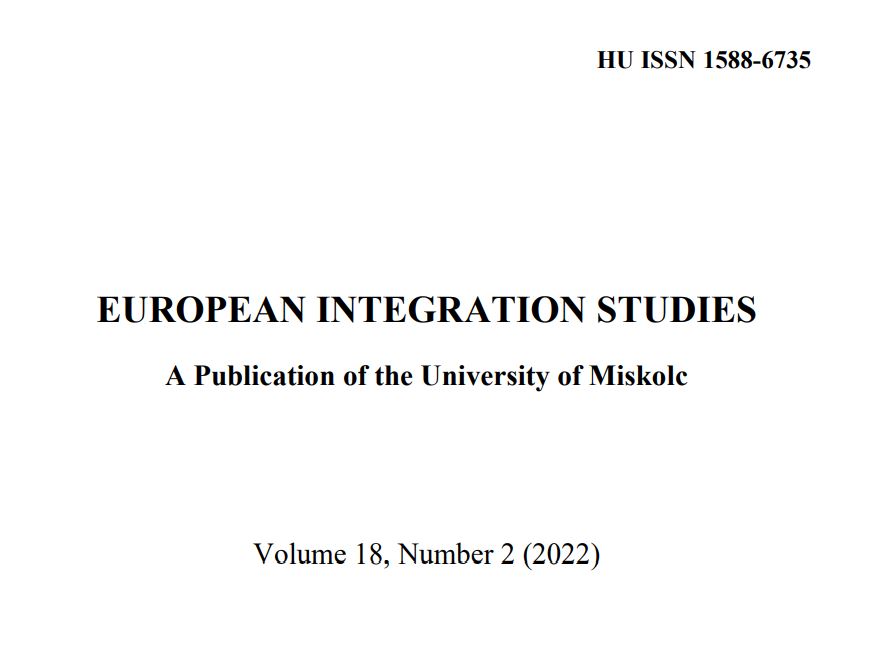Invalidity rules in the German Civil Code
DOI:
https://doi.org/10.46941/2022.e2.127-136Keywords:
common decency, indirect third-party effect of fundamental rights in private law, judge-made-law, general clausesAbstract
German Law is an example of a Civil law system. A feature of this – probably in Germany in the most abstract system – is the conviction that all possible legal constellations are abstract, sufficient, and regulated by just one law. One would have merely to look into the Official Law Gazette to find for each case the prior regulated rule.
Invalidity is mentioned in different sections of the German Civil Code (GCC). The general part of the GCC contains Section 138 which as a general provision applies to all parts of the GCC. S. 138 subs. 1 reads: ‘Ein Rechtsgeschäft, das gegen die guten Sitten verstößt, ist nichtig.’ or in English: ‘A legal transaction which is contrary to public policy is void.’ Other translations for the term ‘gute Sitten’ could be ‘good morals’, ‘public decency’, or ‘common decency’. Thereby the German legal system refuses to recognise immoral transactions via Section 138 GCC and thus the possibility of deriving enforceable legal consequences from an immoral legal transaction. The term ‘gute Sitten’ is a general clause. General clauses in the language of the law are usually understood as specific legal provisions containing various types of terms with flexible/undefined meanings. It means that the text recipient is referred to general assessment criteria of non-legal character – that is to say moral values, political values, or economic values.
In older German Courts decisions Section 138 GCC was interpreted in the way that a transaction is contrary to morality if it is ‘contrary to the sense of decency of all fair and just thinkers’. The formulation used by case law in recent times reads: ‘[a] legal transaction is to be judged immoral within the meaning of this provision if it is incompatible with the fundamental values of the legal and moral order according to its overall character, which can be inferred from the summary of its content, motive, and purpose.’ German courts have developed case groups that can be used as a guide in the evaluation of a legal transaction as valid or invalid according to Section 138 GCC. The presentation focuses on the term ‘gute Sitten’ or ‘common decency’ as a gate to bring constitutional values into the sphere of private law. It will also refer to the history of this norm and the legal space it opens for judge-made-law.
References
REFERENCES
Cummins, T. (2010). Best Practices in commercial contracting. Scandinavian Studies in Law, Vol. 49, pp. 131–148.
Creifelds, C. – Cassardt, G. – Guntz, D. et al. (2011). Rechtswörterbuch. München: C.H. Beck.
Döser, W. H. (2000). Anglo-amerikanische Vertragsstrukturen in deutschen Vertriebs-, Lizenz- und sonstigen Vertikalverträgen. Neue Juristische Wochenschrift, Vol. 2000, No. 20, pp. 1451–1455.
Grzybek, J. – de Vries, T. – Zhang, Y. (2015). Achieving flexibility in contracting by using vague terms in international business contracts: A comparative approach from the perspective of Common law, German, Polish and Chinese Law. Lapland Law Review, Issue 2, pp. 143–189.
Haferkamp, H. P. (2003). Sittenwidriges Rechtsgeschäft; Wucher. In: Schmoeckel, M. – Rückert, J. – Zimmermann, R. (eds.). Historisch-kritischer Kommentar zum BGB. Vol. I. Allgemeiner Teil. Tübingen: Mohr Siebeck, pp. 708–752.
Jarass, H. – Pieroth, B. (2020) Grundgesetz für die Bundesrepublik Deutsch-land. 3rd ed., Munich: C.H. Beck.
Lengeling, D. (2008). Common law and civil law – differences, reciprocal influences and points of intersection. Toronto/Siegen. Available at: https://-www.yumpu.com/en/document/read/3988343/common-law-and-civil-law-aeur-differences-reciprocal-consulegis (Accessed: 18 January 2022).
Luig, K. (1982). Vertragsfreiheit und Äquivalenzprinzip im gemeinen Recht und im BGB. In: Bergfeld, C. et al. (eds.). Aspekte europäischer Rechtsgeschichte. Festgabe für Helmut Coing zum 70. Geburtstag. Frankfurt am Main: V. Klostermann, pp. 171–206.
Motive zu dem Entwurfe eines BGB für das Deutsche Reich, Vol. V, Erbrecht. Amtliche Ausgabe, 1888. Available at: https://archive.org/details/motivezu dementw03germgoog/page/n4/mode/2up (Accessed: 18 January 2022).
Mugdan, B. (1899). Die gesamten Materialien zum Bürgerlichen Gesetzbuch für das Deutsche Reich. Vol. I, Berlin: Decker. Available at: https://collec tions.thulb.uni-jena.de/servlets/MCRFileNodeServlet/HisBest_derivate_000 10708/Band%201.pdf (Accessed: 18 January 2022).
Planck, G. (1903). Kommentar zum BGB, Allgemeiner Teil. Berlin: Verlags-buchhandlung I. Guttentag.
Posner, R. A. (2010). Regulation (Agencies) versus Litigation (Courts): An Analytical Framework. In: Kessler D. P. (ed.). Regulation vs. Litigation: Perspectives from Economics and Law, Conference held September 11–12, 2009, Chicago: University of Chicago Press, pp. 11–26.





